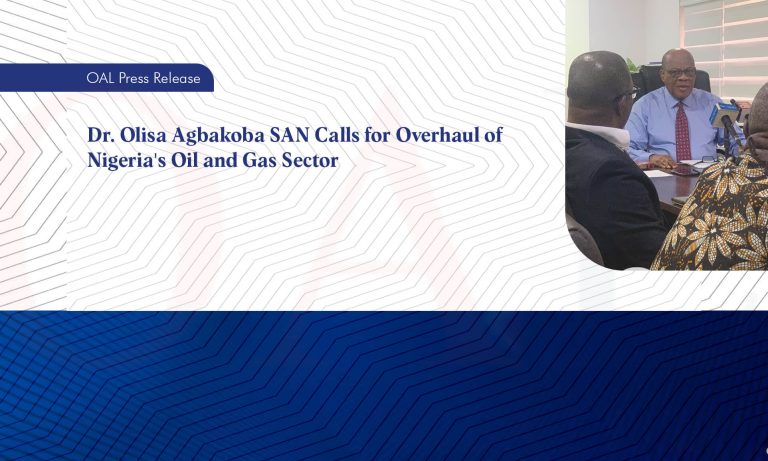
National Arbitration Policy: Critical Next Steps Following the P&ID Award | Olisa Agbakoba Legal

The need for a National Arbitration Policy comes on the back of the recent enforcement order relating to the sum of US$9, 000, 000, 000 (Nine Billion US Dollars) made against Nigeria by an English High Court, which was based upon an arbitration award secured by a company, Process and Industrial Developments Limited (P&ID), has generated a huge outcry. This development presents grave and far-reaching implications for Nigeria, as it means that the country’s assets could be attached in order to satisfy the award. The Nigerian Government says that the P&ID’s oil and gas contract with Nigeria, which represented the genesis of the arbitration, was a scam perpetrated by the company.
 However, irrespective of whether or not the P&ID case was built on a scam, a crucial issue flowing from the case is that our present policy relating to the resolution of disputes arising from Nigeria’s Bilateral Investment Treaties (BITs) requires major review. Afterall, P&ID’s recourse to arbitration largely stemmed from its right as a foreign investor to resort to arbitration under Nigeria’s BIT. In fact, the current position is that all of Nigeria’s BITs provide that disputes between Nigeria and foreign investors will be resolved by recourse to arbitration to be conducted in international institutions of arbitration outside Nigeria.
However, irrespective of whether or not the P&ID case was built on a scam, a crucial issue flowing from the case is that our present policy relating to the resolution of disputes arising from Nigeria’s Bilateral Investment Treaties (BITs) requires major review. Afterall, P&ID’s recourse to arbitration largely stemmed from its right as a foreign investor to resort to arbitration under Nigeria’s BIT. In fact, the current position is that all of Nigeria’s BITs provide that disputes between Nigeria and foreign investors will be resolved by recourse to arbitration to be conducted in international institutions of arbitration outside Nigeria.
It is acknowledged that arbitration is a contemporary method of dispute resolution that has been embraced in commercial relationships all over the world and Nigeria’s BITs are not an exception, however, the contention is that the recourse to international institutions of arbitration in Nigeria’s BITs is totally unnecessary, considering that there are institutional arbitration mechanisms in Nigeria that are capable of undertaking the arbitration performed by their foreign counterparts. Suffice to say that Nigeria ought to be the seat of arbitration in respect of disputes arising from its BITs.
Interestingly, the resort to foreign arbitration in Nigeria’s BITs is not peculiar and appears to reflect a continental trend. In this respect, the consideration of most African BITs will reveal provisions for dispute settlement by recourse to arbitration to be conducted by non-African institutions of arbitration such as the International Centre for the Settlement of Disputes (ICSID). This has meant that many arbitration cases involving Nigerian or African parties are settled outside Africa.
The proponents of resorting to foreign arbitration in Nigeria’s BITs might argue that there are challenges confronting arbitration in Nigeria, which justifies the need to rely on foreign institutions of arbitration. In this regard, references might be made to issues such as the lack of belief in the neutrality of Nigerian arbitration institutions, negative perception of Nigeria as an arbitration destination and the foreign investor’s power to dictate the seat of arbitration.
However, it is submitted that these purported challenges are old excuses that have since been overtaken by advancement in Nigeria’s arbitration development. This is because there has been a steady and appreciable growth in the legislative and institutional framework revolving around arbitration in Nigeria.
With the P&ID case, it is crucial that we must become proactive in developing a new national arbitration policy, which will have its roots embedded in Nigeria’s commercial relationships and dealings with foreign entities. To give effect to the national arbitration policy, the Nigerian government will be expected to promote a policy that arbitration agreements in respect of all disputes arising from governmental contracts with foreign entities will have Nigeria as the seat of arbitration.
This was the subject of a recent letter written by Dr Olisa Agbakoba SAN to President Muhammadu Buhari, wherein he advocated that Nigeria should establish a national arbitration policy by the enactment of an Executive Order, which will commence the process and procedure of creating the policy. In this respect, the Executive Order may establish a National Task Force or Workgroup to develop the mechanics of the policy.
It is important to stress that the proposed national arbitration policy should not just be directed to government contracts or dealings, but it should be extended to private commercial relationships. This is in light of the fact that Nigeria generates a significant volume of private commercial transactions.
 Unfortunately, a significant number of disputes arising from these transactions are ultimately arbitrated in foreign jurisdictions. Undoubtedly, the flight of domestic arbitration cases to arbitral venues outside Nigeria is unhelpful to our economic development as a country, and also to arbitration practitioners. This misnomer accounts for the loss of revenue on both levels and requires a national arbitration policy to reverse the trend.
Unfortunately, a significant number of disputes arising from these transactions are ultimately arbitrated in foreign jurisdictions. Undoubtedly, the flight of domestic arbitration cases to arbitral venues outside Nigeria is unhelpful to our economic development as a country, and also to arbitration practitioners. This misnomer accounts for the loss of revenue on both levels and requires a national arbitration policy to reverse the trend.
Importantly, Nigerian arbitration bodies should encourage and implement capacity building programmes that will assist with the development and advancement of the proposed national arbitration policy. This could be achieved by the provision of educational outreach, extensive training and programmes, conferences and workshops. With increased attention and improvement on the legal framework underpinning arbitration in Nigeria, as well as better resourcing and training, Nigeria can secure for itself, a place on the global arbitration sphere, through its national arbitration policy.
In conclusion, the proposed national arbitration policy should be seen as presenting an opportunity for Nigeria to review the arbitration provisions in its BITs, which would position Nigeria as the seat of arbitration in respect of disputes emanating from Nigeria’s BITs and private commercial transactions. In this respect, the Federal Government must act with a sense of urgency to remedy the position whereby Nigeria is shortchanged under its BITs.
Written By: Dr Oluwole Akinyeye (Head – Maritime Unit)
Author



